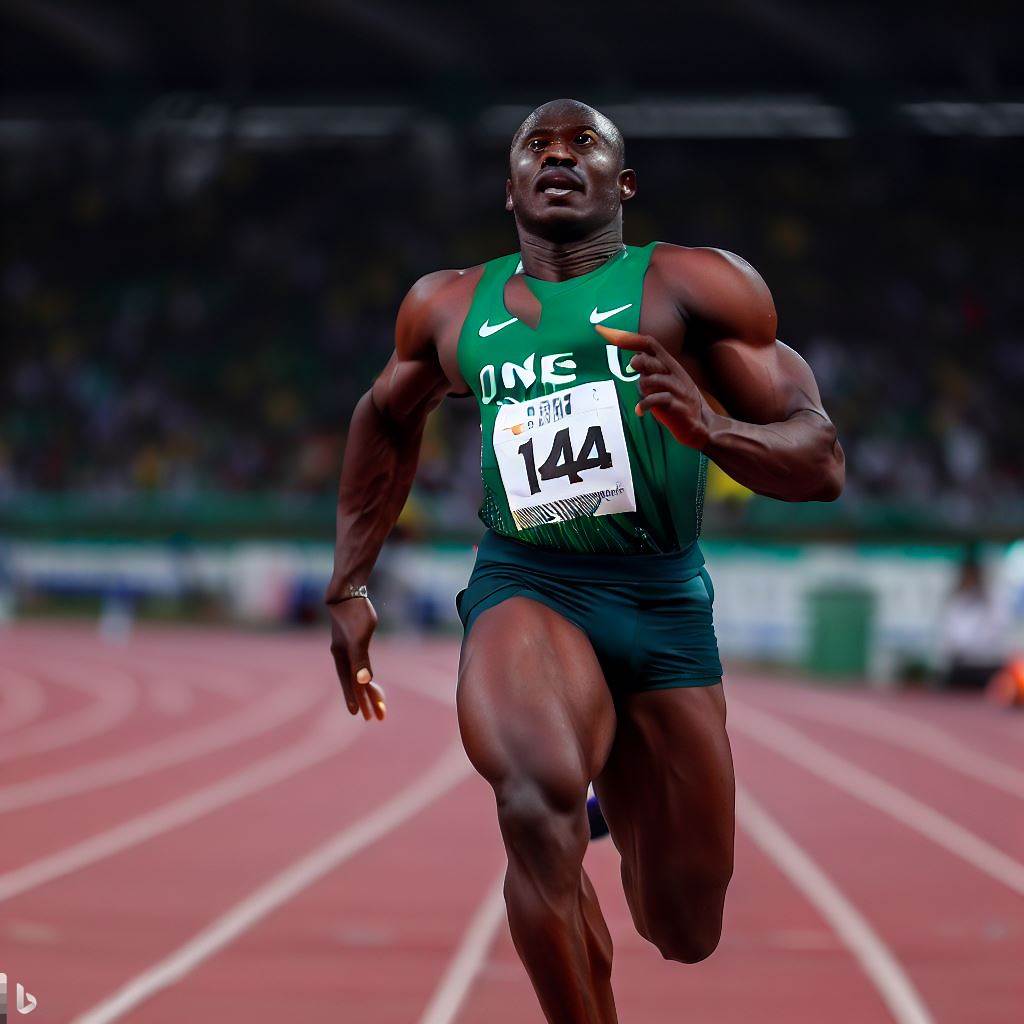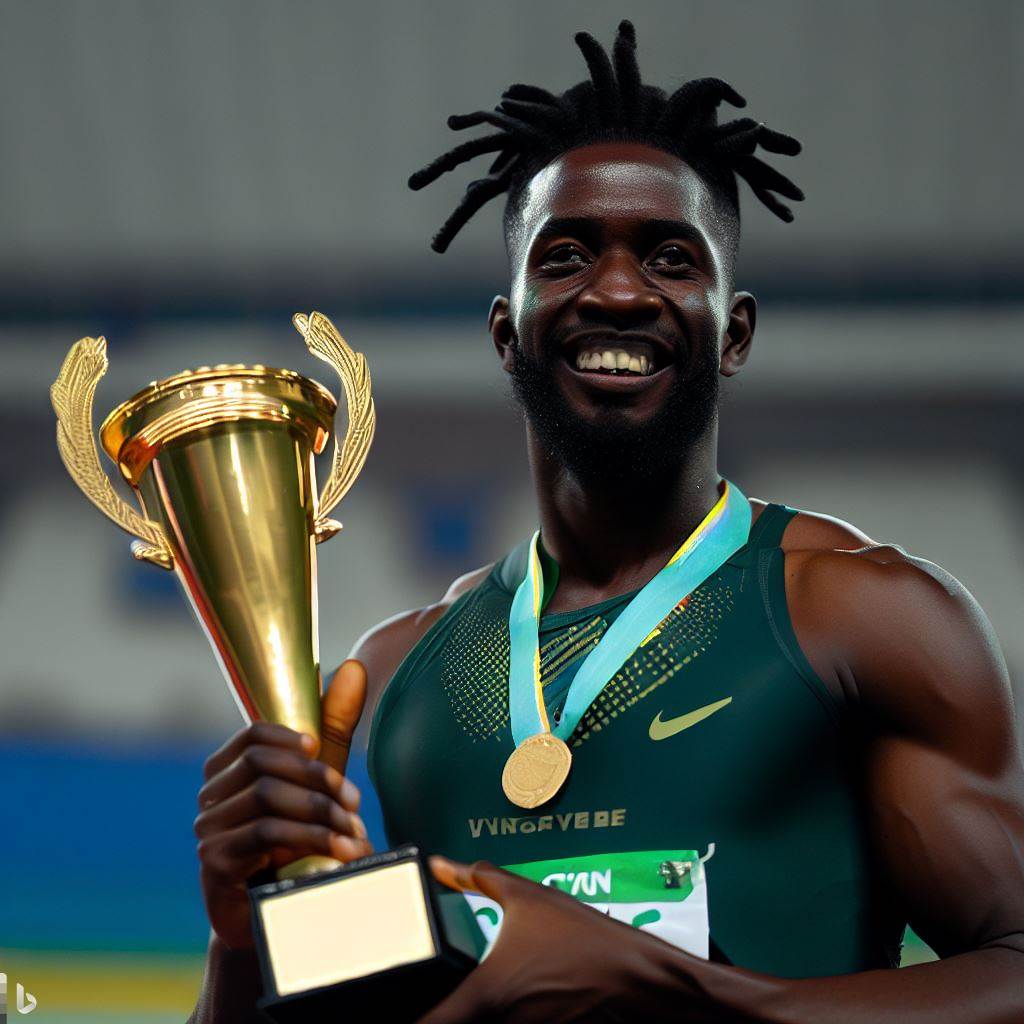Introduction to the Concept of Sports Management in Nigeria
Sports management in Nigeria is a rapidly evolving field.
It encompasses various aspects of sports, including administration and marketing.
This sector plays a crucial role in enhancing athletic performance and organization.
Furthermore, it fosters development within sports communities.
Overview of the Current Sports Management Landscape
The current landscape highlights the impact of globalization on Nigerian sports.
Many local athletes now compete on international stages.
Consequently, this increase in visibility demands improved sports management practices.
Organizations must adapt to the new challenges and opportunities presented.
The Significance of Effective Management
Effective sports management in Nigeria leads to better athlete development.
This includes talent identification, training programs, and career guidance.
Moreover, it benefits stakeholders, such as sponsors and fans.
Strong management practices ensure that all parties achieve their objectives.
Challenges Faced in Sports Management
Nigeria’s sports management scene contends with several challenges.
Inadequate funding often limits program development.
Additionally, there are gaps in governance and leadership structures.
Moreover, stakeholders sometimes face issues with coordination and communication.
Opportunities for Growth
Despite the challenges, opportunities for growth abound in this sector.
Investments in technology could enhance performance tracking and analytics.
Furthermore, partnerships with educational institutions can yield better results.
Engaging local communities in sports initiatives promotes sustainable growth.
The Role of Sports Agents in Management
Sports agents play a pivotal role in Nigeria’s sports management scene.
They serve as intermediaries between athletes and various stakeholders.
Especially when it comes to contracting and negotiating terms.
Moreover, they offer career advice and guidance to their clients.
This support is vital for athletes to realize their full potential.
Definition and Roles of Sports Agents in the Nigerian Context
Sports agents represent athletes in the complex sports management ecosystem.
They act as intermediaries between athletes and stakeholders, such as teams, sponsors, and media.
Furthermore, their primary role involves negotiating contracts on behalf of the athletes.
Thus, they ensure that athletes receive appropriate compensation for their talents.
In Nigeria, sports agents also provide career guidance to young athletes.
They help navigate professional pathways and identify suitable opportunities.
Contract Negotiation
One of the main responsibilities of sports agents is contract negotiation.
They leverage their expertise to secure optimal deals for their clients.
This often involves negotiating salaries, endorsements, and performance bonuses.
Their skills ensure that athletes are treated fairly and justly compensated.
Marketing and Brand Management
Sports agents also play a crucial role in marketing and brand management.
They help athletes build and maintain their personal brand.
This includes promoting athletes through social media and public appearances.
Additionally, agents identify endorsement opportunities aligned with athletes’ brands.
Career Development and Support
Agents provide vital support in career development for athletes.
They offer guidance on training, performance improvement, and injury management.
Moreover, they assist in planning for life after sports, ensuring long-term success.
This holistic approach is beneficial for building sustainable careers.
Relationship Building
Building strong relationships with teams and sponsors is essential for agents.
These connections can open doors for their athletes in competitive markets.
Agents often leverage their network to create additional opportunities.
Such relationships enable athletes to thrive in their sporting careers.
Challenges in the Industry
Despite their crucial roles, sports agents face challenges in Nigeria.
The industry often grapples with a lack of regulation and transparency.
This can lead to unethical practices and exploitation of young talents.
Furthermore, navigating bureaucracy within Nigerian sports can be complex.
Future of Sports Agents in Nigeria
The future of sports agents in Nigeria looks promising as the industry evolves.
Increasing recognition of diverse sports can create more opportunities.
Agents must adapt to changing dynamics in the global sports landscape.
By doing so, they will continue to play an instrumental role in athlete representation.
Historical Evolution of Sports Management and the Emergence of Agents in Nigeria
Early Days of Sports Management in Nigeria
Sports management in Nigeria dates back to the colonial era.
During this time, various sports were introduced by colonial authorities.
Soccer became particularly popular among Nigerians.
This popularity eventually led to formal organizations being established.
Furthermore, local clubs began to form after Nigeria gained independence.
The Rise of Professionalism in Sports
The 1980s marked a significant shift towards professionalism in sports management.
Subsequently, the Nigerian Football Association was established in 1945.
This organization aimed to oversee soccer activities across the nation.
As professionalism grew, so did the need for agents.
Agents began to play a crucial role in athlete representation.
The Role of Agents in the Current Landscape
Today, agents are vital in negotiating contracts for athletes.
They ensure that players receive fair compensation and benefits.
Moreover, agents help athletes secure endorsements and sponsorships.
This function significantly enhances athletes’ financial security.
Agents also provide guidance on career management and development.
Challenges Faced by Sports Agents in Nigeria
Despite their importance, agents in Nigeria face several challenges.
The lack of regulation often leads to unethical practices among some agents.
Additionally, the transparency of financial dealings is often questionable.
Consequently, many athletes struggle to trust their agents.
Moreover, the limited market access hampers athlete visibility and opportunities.
The Future of Sports Management and Agents
Looking ahead, the role of agents will continue to evolve in Nigeria.
As the sports industry grows, so will the demand for professional agents.
Emerging technologies will also influence how agents operate.
Digital platforms can enhance communication and transparency.
In the long run, these changes may improve the overall sports management landscape.
Gain More Insights: How to Become a Sports Manager in Nigeria’s Competitive Industry
Impact of Sports Agents on Athletes’ Career Development and Opportunities
Advocacy and Representation
Sports agents act as advocates for athletes in various settings.
They negotiate contracts that enhance financial security for players.
Moreover, agents represent athletes’ interests during endorsements.
They help athletes navigate complex legal landscapes of professional sports.
Career Guidance and Development
Agents provide critical guidance for career decisions.
They assess market opportunities to maximize an athlete’s potential.
Publish Your Professional Profile, Business or Brand
Showcase your expertise, gain trust, and boost visibility instantly on Professions.ng.
Publish NowAdditionally, agents advise on training and skill development.
They connect athletes with specialized coaches and mentors.
Networking and Opportunities
Networking is essential in sports, and agents excel in this area.
They maintain relationships with team executives and sponsors.
This access creates opportunities for athlete visibility and recruitment.
Consequently, athletes can benefit from endorsements and sponsorships.
Financial Management and Security
Sports agents often aid in sound financial management for athletes.
They support athletes in making wise investment choices.
Furthermore, agents may connect athletes with financial advisors.
Effective financial planning is crucial for long-term stability.
The Future of Sports Management in Nigeria
The landscape for sports management in Nigeria is evolving.
Emerging talents require robust support systems to flourish.
Agents play a critical role in this transformative process.
They help bridge the gap between local talent and international opportunities.
Delve into the Subject: How to Become a Successful Sports Physiotherapist in Nigeria
Legal and Ethical Considerations for Sports Agents in Nigeria
Understanding the Legal Framework
Nigeria’s sports management scene is shaped by various legal frameworks.
Both federal laws and international regulations govern sports agencies.
Sports agents must comply with the Nigerian Sports Regulation Act.
This act sets standards for representation in sports.
Agents also need to adhere to FIFA regulations for player transfers.
Understanding these legal norms is crucial for effective operations.
Importance of Contracts
Contracts are essential in establishing relationships between agents and athletes.
A well-drafted contract protects the interests of both parties.
It outlines the responsibilities and rights of the agent and the athlete.
Clarity in terms reduces misunderstandings and disputes.
Agents should ensure contracts comply with Nigerian law and FIFA guidelines.
Ethical Practices in Sports Management
Upholding high ethical standards is vital for sports agents.
Transparency builds trust between agents and athletes.
Agents must disclose all fees and commissions up front.
This practice helps avoid conflicts of interest.
Ethical agents advocate for the best interests of their clients.
Preventing Exploitation
Agents play a role in protecting athletes from exploitation.
Younger or less experienced athletes are particularly vulnerable.
Agents should educate their clients about industry standards.
They must also help athletes understand their rights.
Being proactive can prevent abuse and unfair treatment.
Compliance with Regulatory Bodies
Nigeria’s sports agencies must report to various regulatory bodies.
Compliance with these bodies ensures accountability and integrity.
Agents should maintain updated knowledge of regulations.
This knowledge prevents legal repercussions for both agents and athletes.
Role of Professional Associations
Professional associations can guide ethical practices for sports agents.
These organizations promote industry standards and best practices.
Members gain access to resources for compliance and professionalism.
Networking with peers fosters a supportive community.
Agents should consider joining relevant bodies to enhance their careers.
You Might Also Like: Becoming a Professional Football Coach in Nigeria: A Step-by-Step Guide

Challenges Faced by Sports Agents in the Nigerian Sports Environment
Limited Resources
Nigerian sports agents often work with limited financial resources.
This restriction affects their ability to recruit and promote talent effectively.
Additionally, they struggle to provide adequate support to athletes.
Lack of funding hinders their negotiating power in contracts.
Regulatory Hurdles
The sports industry in Nigeria faces numerous regulatory challenges.
Agents must navigate complex laws and policies that change frequently.
Moreover, inconsistent enforcement of regulations creates uncertainty.
This inconsistency complicates the agents’ roles significantly.
Market Saturation
The number of sports agents in Nigeria has surged in recent years.
This saturation leads to increased competition among agents.
As a result, standing out becomes a daunting task for many.
Agents often find it challenging to secure high-profile clients.
Lack of Professional Development
Many agents lack access to training and professional development opportunities.
Consequently, they may not be well-informed about best practices in sports management.
This gap in knowledge can lead to poor representation of athletes.
Furthermore, it limits their ability to advocate effectively for their clients.
Trust Issues and Reputation Challenges
Trust is a significant concern in the Nigerian sports market.
Agents frequently face skepticism from athletes and clubs alike.
This skepticism arises from past experiences with fraudulent agents.
Establishing a solid reputation amid these challenges is crucial.
Infrastructural Limitations
Poor infrastructure adversely affects sports management in Nigeria.
Limited access to facilities hampers talent development.
Moreover, insufficient transportation can complicate travel for athletes.
These infrastructural deficits impact agents’ ability to operate effectively.
Gain More Insights: Top Sports Professions in Nigeria with Big Paychecks
Case Studies of Successful Sports Agents
Introduction to Key Players
Nigeria’s sports management scene thrives, thanks to dedicated agents.
These professionals advocate for athletes and help them reach their potential.
They play a crucial role in negotiating contracts and endorsements.
Highlighting Notable Agents
One prominent agent is Kingsley Okwuosa.
His work with footballers has elevated many careers.
He secured deals for players in top international leagues.
These achievements enhance the visibility of Nigerian sports.
Impact of Agents on Athletes
Agents provide essential career guidance for athletes.
They ensure players understand their market value.
Moreover, agents help manage athletes’ public relations effectively.
Case Study: Chloe Eze’s Transformation
Chloe Eze is a standout example of a successful partnership.
Her agent, Linda Adebayo, has been instrumental in her rise.
Under Linda’s management, Chloe secured commercial endorsements.
This not only increased her earnings but also her marketability.
Expanding Opportunities Through Networks
Sports agents connect athletes to lucrative sponsorships.
This access often leads to greater financial stability for players.
Publish Your Professional Profile, Business or Brand
Showcase your expertise, gain trust, and boost visibility instantly on Professions.ng.
Publish NowAdditionally, agents facilitate opportunities in foreign markets.
The Importance of Sports Agents in Nigeria
Sports agents are pivotal in Nigeria’s sports framework.
They drive talent development while championing athletes’ interests.
Consequently, agents contribute meaningfully to the growth of sports management.
Future Trends and Potential for Growth in Sports Management and Agency in Nigeria
Emerging Opportunities in Sports Management
Nigeria’s sports sector is brimming with untapped potential.
As global interest in African sports increases, Nigerian athletes gain wider recognition.
This opens new doors for sports management agencies.
Moreover, professional opportunities encourage new businesses to enter the market.
Consequently, creative strategies for athlete representation flourish.
Technology Integration
Technology will play a vital role in the future of sports management.
Digital platforms streamline communication between players and agents.
Furthermore, data analytics enhances performance assessment for athletes.
For instance, agencies can evaluate player metrics to improve client placements.
Additionally, virtual reality training tools enrich athletes’ preparation experiences.
Increased Investment in Sports Infrastructure
Investment in sports infrastructure will fuel growth in the coming years.
Government and private sectors are beginning to recognize this need.
New stadiums and training facilities emerge across the nation.
This infrastructure will support deeper engagement in various sports disciplines.
Ultimately, improved facilities attract international events and further investment.
Rise of Women’s Sports
Women’s sports are gaining significant traction in Nigeria.
Soccer, basketball, and athletics provide pathways for female athletes.
Additionally, increased media coverage elevates female sports visibility.
Agencies have unique opportunities to represent emerging female stars.
This rise fosters a broader fan base and stimulates economic growth.
Global Partnerships and Collaborations
Forging global partnerships enhances Nigeria’s sports management landscape.
Collaboration with international agencies offers learning opportunities.
These partnerships enhance the capabilities of local agents.
Furthermore, shared resources and expertise drive innovation in sports practices.
Travel and exposure will elevate Nigerian standards to a global level.
Youth Development Programs
Youth development programs will be critical for cultivating new talent.
These initiatives harness young people’s passion for sports.
Moreover, educating youth about career options in sports promotes sustainability.
Agencies can invest in grassroots programs to build stronger connections.
This strategy strengthens talent pipelines for the Nigerian sports industry.
Additional Resources
The Power of Social Media for Athletes – sportsmarketing agency
adidas Careers – Through sport, we have the power to change lives.




